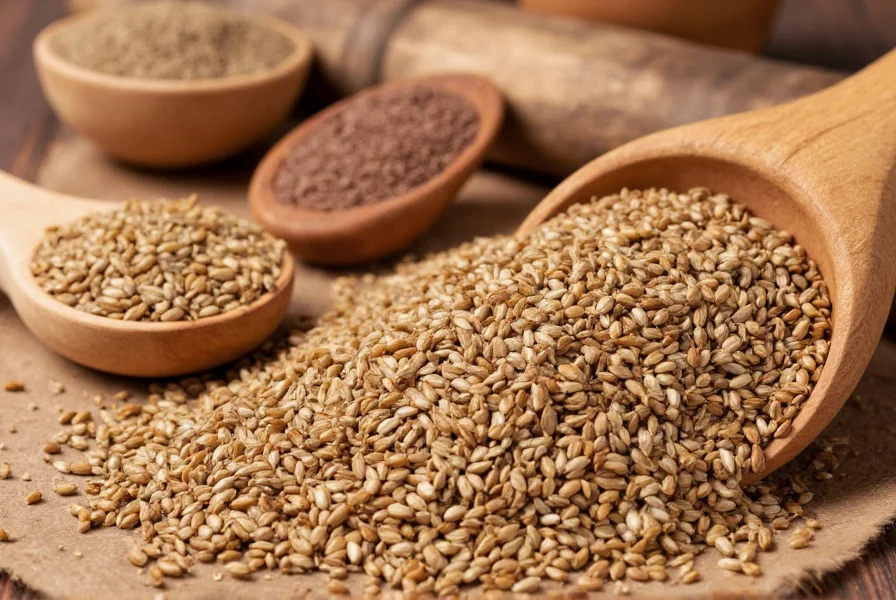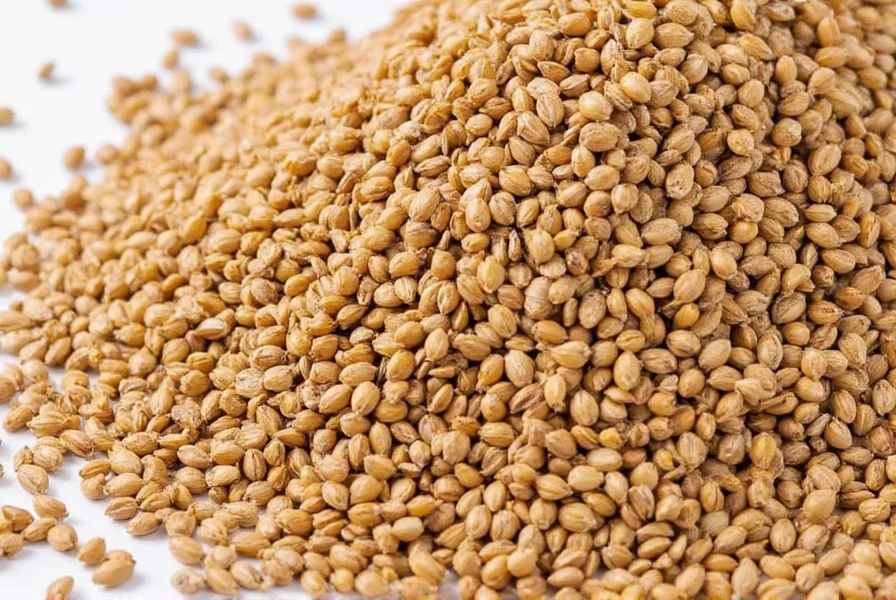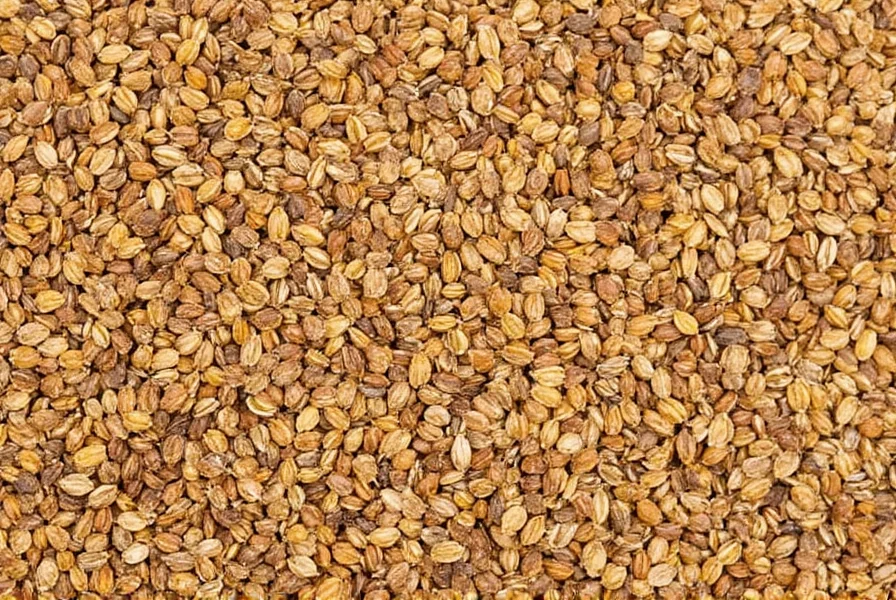Cumin seeds, known as jeera in Hindi and widely used across Indian and Middle Eastern cuisines, represent one of the world's oldest spices with documented use dating back to ancient Egyptian times. Beyond their distinctive earthy flavor, modern research reveals compelling health properties that validate their traditional medicinal applications. This comprehensive guide examines the evidence-based benefits of incorporating cumin seeds into your diet while maintaining scientific accuracy and practical relevance.
Nutritional Powerhouse in a Tiny Package
Just one tablespoon (6 grams) of cumin seeds delivers impressive nutritional value:
| Nutrient | Amount per Tbsp | %DV* |
|---|---|---|
| Calories | 23 | 1% |
| Iron | 1.4 mg | 8% |
| Manganese | 0.3 mg | 13% |
| Magnesium | 29 mg | 7% |
| Calcium | 27 mg | 2% |
*Daily Value based on a 2,000 calorie diet. Source: USDA FoodData Central
These nutritional components form the foundation for cumin's health-promoting properties. The seeds contain bioactive compounds like cuminaldehyde, terpenes, and phenolic acids that contribute to their therapeutic effects.
7 Evidence-Based Health Benefits of Cumin Seeds
1. Enhanced Digestive Function
Multiple studies confirm cumin's traditional use for digestive support. Research published in the Journal of Ethnopharmacology demonstrated that cumin extract significantly increased pancreatic amylase and lipase activity—enzymes critical for carbohydrate and fat digestion. Participants consuming cumin experienced reduced bloating and improved digestion compared to placebo groups. This makes how cumin seeds improve digestion naturally a well-documented benefit.

2. Potent Antioxidant Activity
Cumin ranks among spices with the highest antioxidant capacity. A 2020 analysis in Antioxidants found cumin contains substantial levels of flavonoids and phenolic compounds that combat oxidative stress. These antioxidants neutralize free radicals, potentially reducing cellular damage associated with chronic diseases. The study noted that antioxidant properties of roasted cumin seeds versus raw showed increased bioavailability of certain compounds after light roasting.
3. Blood Sugar Management Support
Several clinical trials indicate cumin may help regulate blood glucose levels. A randomized controlled trial with 80 participants (published in Nutrition Research) found that 75mg of cumin extract daily significantly reduced fasting blood glucose and HbA1c levels in prediabetic individuals over 8 weeks. While not a diabetes treatment, these findings suggest can cumin seeds help control blood sugar levels through complementary dietary approaches.
4. Iron-Rich for Anemia Prevention
With 1.4mg of iron per tablespoon (8% of daily needs), cumin represents an excellent plant-based iron source. Research in Plant Foods for Human Nutrition showed that regular consumption of cumin-enriched foods significantly improved iron status in women with mild iron deficiency. The study noted enhanced absorption when consumed with vitamin C-rich foods—a valuable insight for using jeera for iron deficiency naturally.
5. Anti-Inflammatory Effects
Cumin's anti-inflammatory properties stem from compounds like thymoquinone and cuminaldehyde. A 2021 review in Phytotherapy Research analyzed multiple studies showing cumin extract reduced inflammatory markers like TNF-α and IL-6 in both animal and human trials. These effects suggest potential benefits for conditions involving chronic inflammation, though more human studies are needed to confirm how cumin seeds reduce inflammation in the body.
6. Cholesterol Management Potential
Several studies indicate cumin may positively affect lipid profiles. Research in Complementary Therapies in Medicine found that participants consuming 3g of cumin powder daily for 8 weeks showed significant reductions in LDL cholesterol and triglycerides compared to control groups. The mechanism appears related to cumin's ability to enhance bile secretion, which helps metabolize fats—making does cumin help lower cholesterol levels a question with promising preliminary answers.
7. Immune System Support
Cumin's vitamin E, vitamin C, and antioxidant content contribute to immune function. A study in Immunological Investigations demonstrated that cumin extract enhanced macrophage activity—the white blood cells responsible for identifying and destroying pathogens. While not a replacement for vaccines or medical treatments, regular dietary inclusion of cumin may provide immune-boosting benefits of jeera seeds as part of a balanced diet.
Practical Ways to Incorporate Cumin Seeds
To maximize benefits while enjoying cumin's flavor, consider these evidence-based approaches:
- Dry roasting: Lightly toast whole seeds before grinding to enhance flavor and antioxidant availability
- Tempering (tadka): Heat seeds in oil to release essential oils and improve nutrient absorption
- Cumin water: Soak 1 tsp seeds overnight; drink strained liquid in morning for digestive benefits
- Combine with vitamin C: Pair with lemon or tomatoes to boost iron absorption
- Moderation: 1-2 teaspoons daily provides benefits without potential side effects

Safety Considerations and Limitations
While generally safe as a culinary spice, certain considerations apply:
- Pregnant women should consume cumin in food amounts only, avoiding medicinal doses
- Those with bleeding disorders should consult doctors before high consumption
- Cumin may interact with diabetes medications—monitor blood sugar closely
- Excessive intake (more than 3g daily) may cause heartburn in sensitive individuals
Remember that cumin seeds offer complementary health support but cannot replace medical treatments for diagnosed conditions. The realistic health benefits of consuming jeera daily come from consistent, moderate dietary inclusion rather than expecting dramatic therapeutic effects.
Conclusion: Balancing Tradition and Science
Cumin seeds represent a remarkable intersection of traditional wisdom and modern scientific validation. Their documented benefits for digestion, antioxidant protection, and nutrient provision make them valuable additions to a health-conscious diet. By understanding both the evidence-based benefits of jeera cumin seeds and their appropriate culinary applications, you can harness their potential while maintaining realistic expectations about their role in overall wellness.
How much cumin should I consume daily for health benefits?
Research suggests 1-2 teaspoons (3-6 grams) of cumin seeds daily provides measurable health benefits without risk of side effects for most adults. This amount can be incorporated through cooking, cumin water, or as a seasoning. Higher medicinal doses should only be taken under healthcare provider supervision.
Can cumin seeds help with weight loss?
Some studies show cumin supplementation may support weight management when combined with a healthy diet and exercise. A 2015 study found women taking 3g of cumin powder daily lost more weight than the control group over 8 weeks. However, cumin alone won't cause significant weight loss—it works best as part of comprehensive lifestyle changes.
What's the difference between raw and roasted cumin seeds?
Roasting cumin seeds enhances flavor and increases bioavailability of certain antioxidants while potentially reducing some heat-sensitive compounds. Light dry roasting (without oil) appears optimal for maximizing health benefits. Raw cumin retains more vitamin C content, while roasted offers better absorption of fat-soluble compounds.
Can I consume cumin seeds if I have acid reflux?
People with acid reflux should monitor their response to cumin. While it aids digestion for many, some individuals with sensitive stomachs may experience increased heartburn. Start with small amounts (1/4 teaspoon daily) and avoid consuming on an empty stomach if you have reflux concerns.
How long does it take to see benefits from consuming cumin seeds?
Digestive benefits may be noticeable within days of regular consumption. More significant effects on markers like blood sugar or cholesterol typically require consistent use for 4-8 weeks based on clinical studies. Individual responses vary based on overall diet, health status, and consumption method.
Frequently Asked Questions
How much cumin should I consume daily for health benefits?
Research suggests 1-2 teaspoons (3-6 grams) of cumin seeds daily provides measurable health benefits without risk of side effects for most adults. This amount can be incorporated through cooking, cumin water, or as a seasoning. Higher medicinal doses should only be taken under healthcare provider supervision.
Can cumin seeds help with weight loss?
Some studies show cumin supplementation may support weight management when combined with a healthy diet and exercise. A 2015 study found women taking 3g of cumin powder daily lost more weight than the control group over 8 weeks. However, cumin alone won't cause significant weight loss—it works best as part of comprehensive lifestyle changes.
What's the difference between raw and roasted cumin seeds?
Roasting cumin seeds enhances flavor and increases bioavailability of certain antioxidants while potentially reducing some heat-sensitive compounds. Light dry roasting (without oil) appears optimal for maximizing health benefits. Raw cumin retains more vitamin C content, while roasted offers better absorption of fat-soluble compounds.
Can I consume cumin seeds if I have acid reflux?
People with acid reflux should monitor their response to cumin. While it aids digestion for many, some individuals with sensitive stomachs may experience increased heartburn. Start with small amounts (1/4 teaspoon daily) and avoid consuming on an empty stomach if you have reflux concerns.
How long does it take to see benefits from consuming cumin seeds?
Digestive benefits may be noticeable within days of regular consumption. More significant effects on markers like blood sugar or cholesterol typically require consistent use for 4-8 weeks based on clinical studies. Individual responses vary based on overall diet, health status, and consumption method.











 浙公网安备
33010002000092号
浙公网安备
33010002000092号 浙B2-20120091-4
浙B2-20120091-4